
 Flash News
Flash News
REL's analysis: A year without talks, although Kurti-Vucic are in favor of talks

It's been a year that they haven't sat in front of each other, although they both say they are in favor of talks.
The Prime Minister of Kosovo, Albin Kurti, and the President of Serbia, Aleksandar Vučić, met for the last time on September 14, 2023.
Ten days after that meeting, the armed attack took place in Banjska, where armed groups of Serbs killed a Kosovo policeman.
An attempt by the European Union to sit them together at the table, in the month of June, has failed, due to, as has been said, some conditions that Kurti has issued, and that Vučić has opposed.
Radio Free Europe asked the Government of Kosovo if the possibility of a meeting between Kurti and Vučić is being considered, but did not receive an answer.
The prime minister himself was asked about such a possibility by journalists, during a visit to North Mitrovica on September 10, but he said that "I don't know if there will be a meeting".
"Even if there will be, I don't know when and what the topics will be. We need to know more to give an answer", said Kurti.
On the same day in Belgrade, Vučić told reporters that "Serbia is always for dialogue" and said he was "ready to go and talk with Kurt today."
Internal politics - priority
The analyst of political issues in Kosovo, Agon Maliqi, says that, under the current circumstances, a meeting between Kurti and Vucic can only happen if they consider it to benefit their internal policies.
According to him, there are a number of issues that could prompt such a meeting, including the indictment that the Special Prosecutor's Office of Kosovo filed on September 11 for the attack in Banjska or the case of the Ibri bridge.
"However, this would be more of a crisis management meeting - as there have been meetings in the last two or three years - than to move forward with the implementation of the Basic Agreement [for the normalization of Kosovo-Serbia relations]", he says Maliqi for Radio Free Europe.
This agreement was reached in February last year, but has not been implemented and the parties have accused each other of non-commitment.
We have an agreement that must be implemented, Kurti said on September 10.
Last year, the prime minister of Serbia at the time, Ana Brnabic, sent a letter to the EU, where she expressed reservations about this agreement.
The EU's special representative in the Kosovo-Serbia dialogue, Miroslav Lajçak, said on September 6 that Serbia has withdrawn this letter. But, despite all the efforts, Radio Free Europe did not manage to get a confirmation about this from the Government of Serbia.
Not before the elections
"Meetings for the implementation of the Basic Agreement - I suspect that there may be something of substance before the elections in the USA and the elections in Kosovo", says Maliqi.
The presidential elections in the USA are held in November, while the parliamentary elections in Kosovo are held in February next year.
Maliqi says that Kurti will be very careful that a possible meeting with Vucic does not affect him negatively in the current pre-election phase.
A similar opinion is expressed by the political scientist from Belgrade, Ognjen Gogić.
In the near future, according to him, the meeting would only take place to keep the spirit of dialogue alive.
"I think that in the EU there is always a willingness and desire to hold Vučić-Kurti meetings, because they look good for European diplomacy", says Gogić, but he is skeptical about any results.
According to him, only in the event that Serbia would agree to discuss the implementation of the Basic Agreement, Kurti and Vučić would soon find themselves facing each other at the negotiating table.
"... but Serbia will not do this, because the agreement does not suit them, despite having accepted it", he says.
Both Maliqi and Gogiq place a part of the responsibility for this impasse in the dialogue on the EU itself as mediator of the process.
According to them, it has not utilized the mechanisms of "reward and punishment" for the parties.
The EU constantly asks them to resolve open issues through dialogue.
While a new meeting between Kurti and Vučić is not on the horizon, Lajcak said last week that an agreement has been reached for a new round of talks between Kosovo's chief negotiator, Besnik Bislimi, and Serbia's, Petar Petkovic, but he did not give a specific date .
How is the situation currently?
Kosovo is at the center of criticism from the international community, due to some steps that it considers unilateral and uncoordinated in the northern part, inhabited by a majority of Serbs.
At the end of August, the authorities closed five parallel Serbian institutions there, on the grounds that they acted outside the laws of Kosovo, while they also warned of the opening of the Ibri bridge, which divides Mitrovica into the predominantly Albanian south and the north inhabited by a Serbian majority.
Although there is an agreement for both the bridge and the parallel structures, reached in Brussels, the Western allies ask Kosovo to address all issues related to the situation in the north, within the framework of the dialogue.
Kurti insists that his Government is extending law and order in the north, where Serbian structures have been operating since the post-war period in 1999.
When he refused to meet with Vučić in June, Kurti said that he cannot have talks with him until three demands are met: the signing of the Basic Agreement, the withdrawal of Bërnabić's letter and the handover to Kosovo of Millan Radoićić and his group , suspected of the armed attack in Banjska.
While there are notifications about the letter that it has been withdrawn, about two other requests, until now, there is no development.
Vučić announced an address to the public on September 13 regarding Serbia's demands and Kosovo's actions in the north. REL
Latest news



Fiscal peace, but at a cost
2025-07-05 18:00:10
'Bankers' tax evasion, Chinese CEO and former director jailed
2025-07-05 17:39:21
Kyle Walker joins English club on two-year deal
2025-07-05 17:20:24
Two cars collide on the Saranda-Delvina axis, 4 injured
2025-07-05 17:05:29
Touching gesture! Liverpool will pay Jota's family's salary until 2027
2025-07-05 16:45:18
The zodiac signs that cheat most often
2025-07-05 16:25:53

"I asked for the dismissals", Dredha tries to soften Rama's 'blow' in Vlora
2025-07-05 15:48:49
Bomb threat in Parliament, prosecutor: It was a lie
2025-07-05 15:22:28

Bardhi: The recount revealed how greedy Zeqine Balluku is in stealing
2025-07-05 14:44:29
Knife wound on the secondary road Tirana-Durrës, perpetrator sought
2025-07-05 14:37:54
Tears and pain, Diogo Jota is escorted to his final home
2025-07-05 14:21:34
Success starts with yourself! Simple ways to invest in personal development
2025-07-05 13:58:50
Unlicensed firearms found in apartment, 50-year-old arrested in Lushnje
2025-07-05 13:43:11

Tirana Court remands Skerdi Sina to prison
2025-07-05 12:59:34
Cocaine laboratory in Greece, here are the Albanians arrested and wanted
2025-07-05 12:40:16
Directed Justice/Vangjeli: SPAK does not investigate any scandal involving Rama
2025-07-05 12:22:03

Bomb alert, Police remove MPs and media from Kosovo Parliament building
2025-07-05 11:48:16
"The will of the people" and the irony of ordered resignations
2025-07-05 11:32:05
Summer drowning risk: How to enjoy the water without risking your life
2025-07-05 11:20:27
Fire situation in the country, 16 fires reported in 24 hours, 4 still active
2025-07-05 11:07:04
Car hits pedestrian at white lines, injured in serious condition in Vlora
2025-07-05 10:59:58
Mosquito-borne diseases are a growing problem in Europe
2025-07-05 10:44:13



One of Sweden's most dangerous and wanted criminals arrested in Turkey
2025-07-05 09:38:29
Foreign exchange/ How much foreign currencies are bought and sold today
2025-07-05 09:18:38

"Don't be influenced by the opinions of others", today's horoscope
2025-07-05 08:40:50

Morning Post/ In 2 lines: What mattered yesterday in Albania
2025-07-05 08:02:07

Trump says he's ready to raise tariffs to 70% on some countries
2025-07-04 22:35:52
Tre shenjat e zodiakut që do ‘pasurohen’ në Korrik
2025-07-04 22:05:09
Gaza War: Hamas Accepts US Proposal for 60-Day Ceasefire
2025-07-04 21:50:10
Autocracy in Albania, Fuga: Governance has gotten out of control
2025-07-04 21:40:51
Meta: Agriculture on credit, the new fraud!
2025-07-04 21:26:39




Vote recount in Durrës ends without changes
2025-07-04 20:12:54
Gas station explodes in Rome, 25 injured (VIDEO)
2025-07-04 20:00:20

These afternoon habits often sabotage weight loss
2025-07-04 19:39:28
Former Arsenal player Thomas Partey accused of rape
2025-07-04 19:24:21
Shepherd disappears without a trace in Delvina
2025-07-04 19:14:31

Bardho gave Zegjine's mandate/Braho: Unfair! It violates the electoral system
2025-07-04 19:01:08


Rapid developments in the Sultanates!
2025-07-04 18:00:06



Italy tightens rules for skateboard traffic
2025-07-04 17:20:18

Unusual for the time, dense fog covers the coast of Vlora
2025-07-04 16:48:01


Accident on the Shkodra-Lezhë axis, one dead and 3 injured
2025-07-04 16:14:19
Albania with fewer requests for asylum and Albanian citizenship in 2024
2025-07-04 16:06:57

Albania last for quality of life, DP: Technical government is the solution!
2025-07-04 15:42:30
Nico Williams says "No" to Barcelona, signs with Athletic Club until 2035
2025-07-04 15:33:35
Fires in the country, four fires are still active, what is the situation?
2025-07-04 15:24:20

Summer brings big changes for these 4 zodiac signs
2025-07-04 15:00:04
Osmani: MPs need to agree to a secret ballot for the Speaker of Parliament
2025-07-04 14:51:09
Serious accident on the Peqin-Elbasan axis, two injured
2025-07-04 14:37:56

GJKKO leaves in force the security measure for the head of the KPP
2025-07-04 13:58:17
Who will replace Ilir Meta and take over the leadership of the PL?
2025-07-04 13:50:36
Berisha: Dismissal of directors in Vlora, another act of 'scapegoats'
2025-07-04 13:41:46




Librazhd/ In a serious psychological state, the young man consumes pesticides
2025-07-04 13:05:07


Weapons trafficked from Kosovo to Albania, two arrested, 8 pistols seized
2025-07-04 12:33:28
Konsumimi i tepërt i çokollatës, ja cilat janë dëmet që shkakton në organizëm
2025-07-04 12:23:35

Fires in the country, 21 fires in the last 24 hours, 4 still active
2025-07-04 12:00:19
WB calls for debt transparency: Albania to publish details of every loan
2025-07-04 11:50:05
Changes in the State Police, new names expected to lead 5 police stations
2025-07-04 11:40:06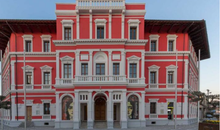
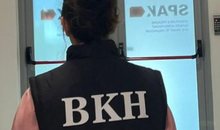
The race for the head of the BKH, the third phase on July 11
2025-07-04 11:20:23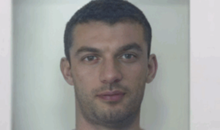
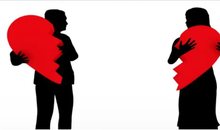
Toxic phrases that show your relationship is in trouble
2025-07-04 11:00:10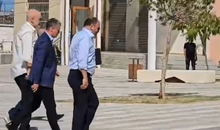
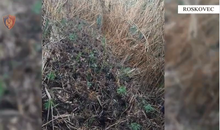
2 brothers arrested in Roskovec, cultivating narcotic plants
2025-07-04 10:38:08
